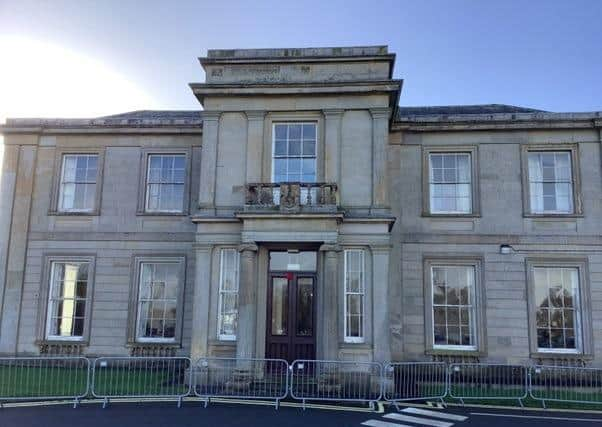Village Catalyst funding still available for rural regeneration in Mid Ulster
and live on Freeview channel 276
The Village Catalyst programme is currently open to applications for three stages of funding and the scheme has already rejuvenated four villages across Northern Ireland, restoring disused listed buildings for the benefit of the local community.
The latest allocation of funding has benefitted two communities in the area. St Joseph’s Grammar School, Donaghmore Parent Support Group received funding as they consider how best to revitalise Mullygruen House, to both support the local community and preserve the building for generations to come.
Advertisement
Hide AdAdvertisement
Hide AdClogher: Early Years also received funding to consider the development of the Former Poor Law Hospital in Clogher.


Brian McKervey, Acting Director for Department for Communities Historic Environment Division, says the scheme has given communities a new lease of life.
Mr McKervey said: “In nearly every rural village, there is a hidden architectural gem waiting to be brought back to life.
Village Catalyst has already revitalised four historic buildings, transforming them into community spaces which benefit local people, both economically and socially. We are very keen to see more of these projects advance to the construction phase and make a real difference for everyone.”
Advertisement
Hide AdAdvertisement
Hide AdThe Village Catalyst Programme is an innovative partnership between Department for Communities (DfC), Department for Agriculture, Environment and Rural Affairs (DAERA), The Architectural Heritage Fund (AHF) and The Housing Executive.
Funding and support are open to charities, social enterprise and other not for profit groups in rural villages with a population under 5,000. To be eligible the building must be listed or within a conservation area.
Three stages of funding are open to applications – viability grants of up to £10,000, project development grants of up to £20,000 and delivery grants of up to £200,000. Currently 10 projects are in the viability and development grant stages and the Department is keen to encourage further applicants.
Both the viability and project development grants are administered by The Architectural Heritage Fund while the Department for Communities administers the delivery grant.
For more information visit Communities NI website.